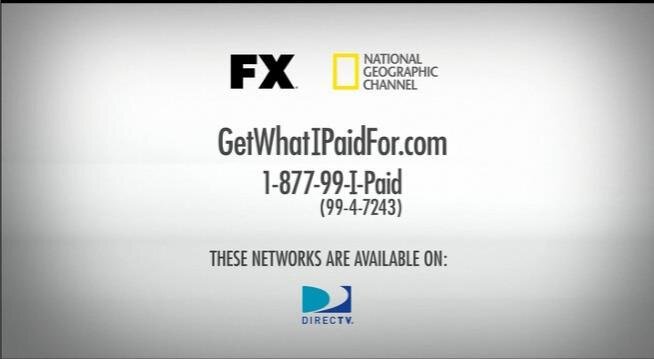Swanni's take on the FOX Dish fight
Commentary:
Fox vs. Dish: It's Not Their Fault
By Swanni
Washington, D.C. (September 30, 2010) -- Today is the last day that Fox and Dish Network can negotiate a new programming agreement allowing the satcaster to carry FX, National Geographic and 19 Fox regional sports networks. If a new agreement is not reached, Dish will be forced to remove the channels, both HD and SD, from its lineup.
In the last week, as the battle has escalated, Fox and Dish supporters have taken turns pointing fingers, blaming each side for the impasse. Fox has suggested that Dish is too cheap to pay a fair rate for the channels. And while Dish management has been oddly quiet during the fight, its supporters at Internet message boards have lambasted Fox, saying they are greedy.
Well, they're both wrong. Neither Fox or Dish should be blamed for the disagreement which is likely to deny Dish's 16 million viewers the right to watch some of their favorite channels.
Seriously, it's hard to blame them when you consider their positions. Fox wants more money for their channels; Dish wants to give less. What's hard to understand about that? It's just business.
So who is to blame?
The Federal Communications Commission.
This is not the first time that a network and TV provider has gone to war over programming fees. In fact, in the last year or so, there have been several fee fights that have resulted in either channels being pulled off the air or last minute agreements. (In June, Dish was forced to drop four Disney high-def channels when it could not reach a new carriage agreement with the programmer; the channels are still off the air.)
However, despite calls from congressional leaders to get involved in these fights, the FCC has sat on its hands. The agency, which has no trouble getting worked up over a televised nipple slip or a naughty word spoken on the radio at 6 a.m., has concluded that it's best for the free market to work out these issues.
Even if millions of American viewers are held hostage by these fee fights, the FCC doesn't seem to care. The agency won't get involved on behalf of the consumer.
It's a ridiculous, irresponsible position and one that could be easily reconciled. All the FCC needs to do is to establish a 'baseball-style' arbitration process for program fee disputes.
The FCC should force TV programmers and TV providers to enter arbitration if they can not reach an agreement one week prior to the end of a carriage agreement.
The arbitrator would determine how much the TV provider should pay for the programmer's channel after hearing arguments from both sides. And the channels would stay on the air until the arbitrator's decision is handed down.
I believe this is something the FCC and the Obama administration can order under existing federal law. But if it looks like the policy would be challenged in court, Congress could pass specific legislation to give it a legal boost.
Failure to implement a baseball-style arbitration at this time will only lead to more carriage battles -- and more times when consumers lose their favorite channels.


